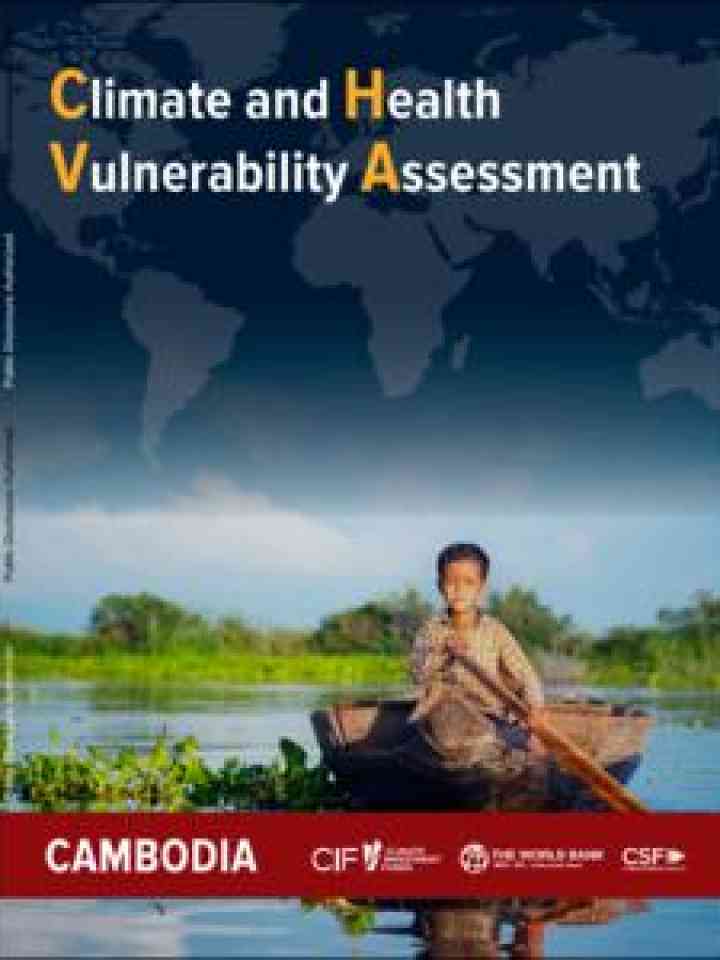Cambodia - Climate and health vulnerability assessment
The objective of the Climate and Health Vulnerability Assessment (CHVA) is to assist decision-makers in Cambodia with planning effective adaptation measures to address climate-related health risks. Climate-related hazards - such as heavy rainfall, flooding, landslides, sea-level rises, extreme heat, droughts, wildfires, and storms - affect agricultural productivity significantly, with tremendous implications on food security and nutrition. They also lead to increased waterborne disease (WBD) outbreaks and the transmission of vector-borne diseases (VBDs) in Cambodia.
The assessment offers recommendation options are based on an assessment of both the magnitude of the current and projected climate-related health risks:
- Expand the community-level mobile application developed by the National Center for Parasitology, Entomology and Malaria Control (CNM) to include other climate-sensitive diseases.
- Incorporate a health sector climate adaptation line into the national budget. Increased financing capacity should focus on improving risk-pooling mechanisms that are targeted at climate-vulnerable populations.
- Conduct an infrastructure assessment to identify key facilities and areas that need further investments to ensure resilience in the face of climate-related hazards. • Develop and ensure the enforcement of building codes that include adaptation and mitigation standards for the health infrastructure.
- Develop tailored capacity-building modules for healthcare workers and health center administrators, accounting for subnational differences in climate-related hazards and health risks.
- Integrate non-governmental organizations, research institutes, and private sector providers of health services into multi-stakeholder coordination mechanisms, such as the Climate Change Technical Working Group (CCTWG).
Explore further
